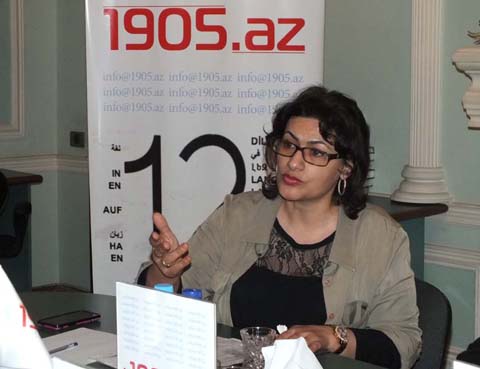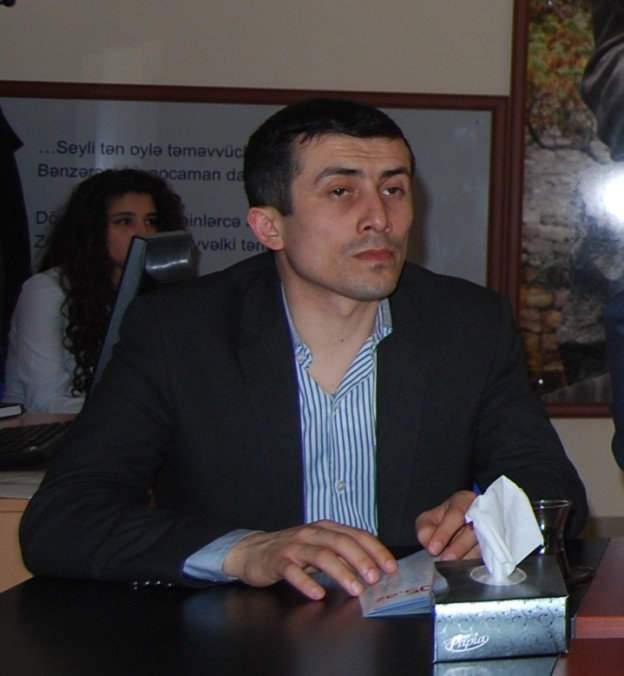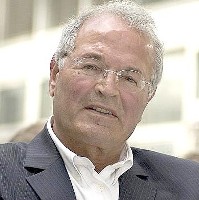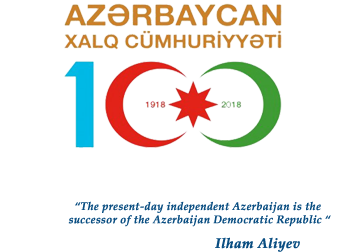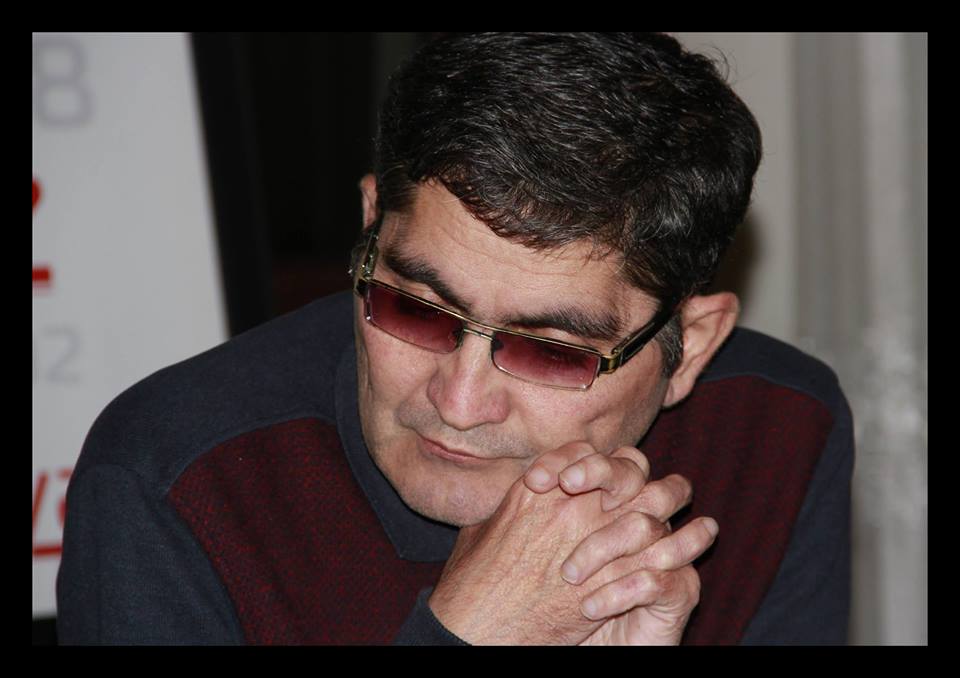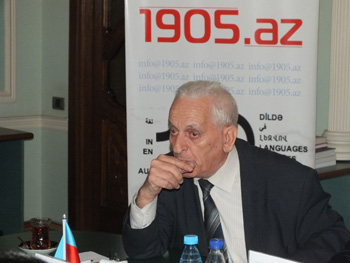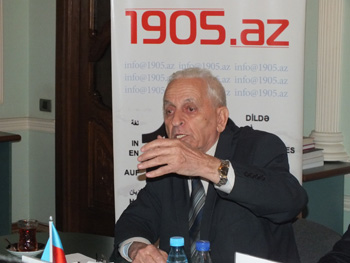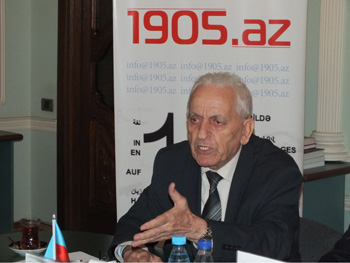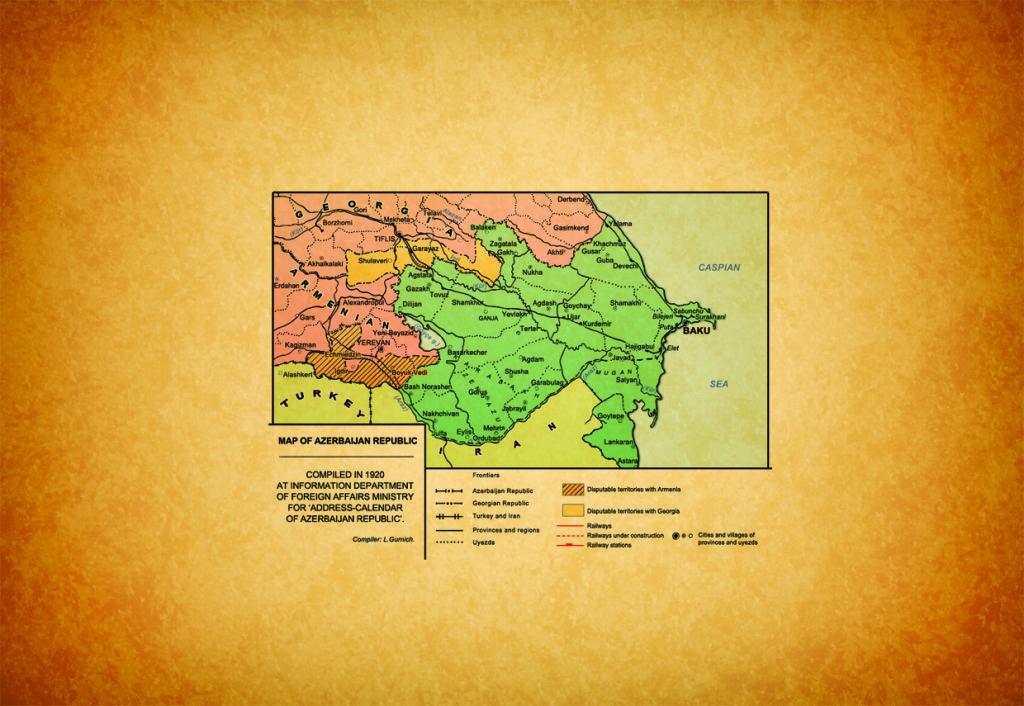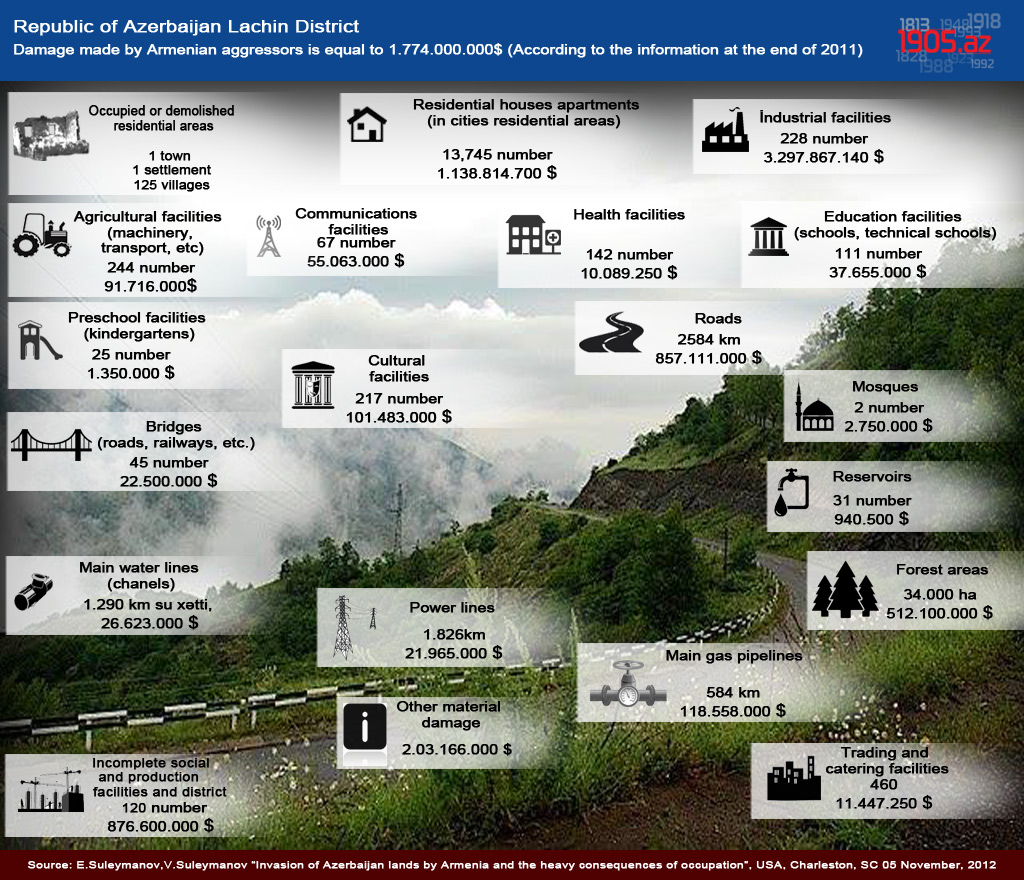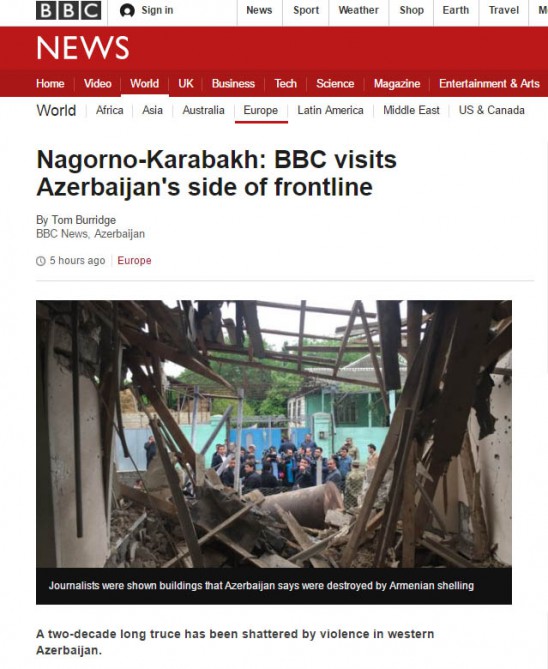
A two-decade long truce has been shattered by violence in western Azerbaijan.
Armenia claims it is not directly involved in a conflict, where it says ethnic Armenians are defending their right to self-determination in the disputed region of Nagorno-Karabakh. But Azerbaijan says its lands were occupied by Armenia, and that it is Armenia doing the fighting.
This is the first time that the BBC has been allowed to visit Azerbaijan’s side of the frontline, as part of a government-organised trip, since the fighting broke out at the beginning of April.
In April, the BBC reported from the other side of the contact line in Nagorno-Karabakh.
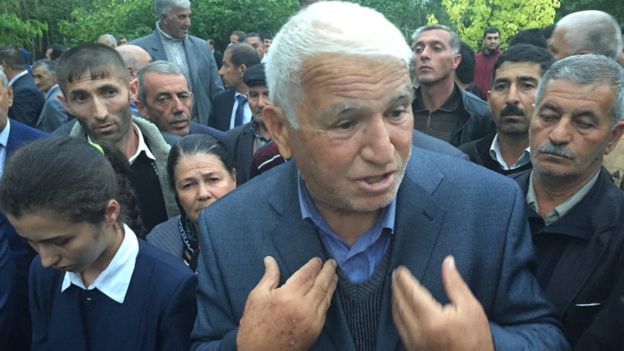
Alakbar Alakbarov, 65, says he was drinking a cup of tea and watching a football match, when the bombs rained down on his village.
He shouts and waves his arms next to a ruined house, which he says he was lucky to escape from.
He blames “Armenian fascists”.
“We want to take our land back by peaceful means. If not, I am ready to fight for my motherland.”
Azerbaijan’s government took us and other journalists on a carefully organised trip to several villages and two hospitals to witness destroyed and burnt-out buildings, and to meet the injured as well as relatives of the deceased.
Clutching a photo of his brother Famil, Ganbar Mustafayev was waiting with three other elderly people, also mourning dead relatives, when our bus arrived.
“My brother became a martyr in his own house,” he tells us.
“He died for his motherland and I am also ready to die.”
Although our trip around Azerbaijan’s regions near the conflict zone was well planned by the government, a genuine and deep sense of animosity towards Armenia was palpable among local people.
Such anger partly stems from the belief among most Azerbaijanis that Nagorno-Karabakh – as well as a large area of other land within Azerbaijan’s internationally recognised borders – has been occupied by Armenia.
The ethnic Armenian authorities in Nagorno-Karabakh claim they are defending their right to self-determination.
However, Hikmat Hajiyev from Azerbaijan’s foreign ministry believes his country has the backing of the international community.
He points out that the UN Security Council has adopted four resolutions calling for the withdrawal of Armenian troops from parts of Azerbaijan’s territories.
“Azerbaijan is committed to the negotiation process for a political resolution to this conflict,” he says.
The deep-rooted hate in the region on both sides is also a hangover from the bloody war the two sides fought from 1988 to 1994.
An estimated 20-30,000 people were killed in that conflict, and there were allegations of human rights abuses by both sides.
But when a ceasefire took effect the dispute was still unresolved, and Baku-based journalist Rauf Mirkadirov is “surprised” that the truce has more or less held for 22 years.
He believes that, without an agreement, it was “inevitable” that the fighting would eventually resume.
Mr Mirkadirov is one of 16 people whom human rights groups considered to be political prisoners, who were released by Azerbaijan in March this year.
He points out that Azerbaijan “has increased its military muscle”.
“From 2003-04 Azerbaijan invested $3bn (£2bn) in its military, and Armenia invested $300-400m.”
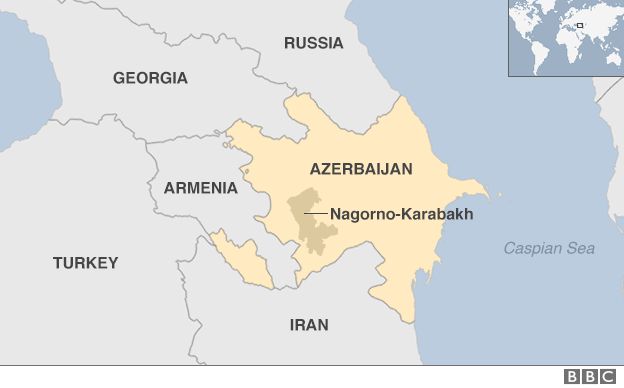
Rauf Mirkadirov says “military rhetoric” linked to the conflict is very popular in Azerbaijan, and he thinks Azeri society was growing tired of the status quo, over land lost in the west of the country.
“The opposition agrees with the government’s policy of liberating territories occupied by Armenia.
“If it is successful, it is the best way to increase their popularity,” he says.
Intricate allegiances
The Armenian-backed forces of the unrecognised republic of Nagorno-Karabakh blame Azerbaijan for the sharp escalation in violence in early April.
But Azerbaijan points the finger of blame at Armenia.
Foreign Ministry spokesman Hikmet Hijaev claims Yerevan has adopted a pre-emptive strategy “to capture new territories” in order to “guarantee the security of occupied territories”.
Russia has been the most active broker in peace negotiations.
However, Turkey is Azerbaijan’s main ally, and relations between Moscow and Ankara have deteriorated since Turkey shot down a Russian fighter jet on the Turkish-Syrian border in November.
Baku’s release of some human rights activists and journalists, including Mr Mirkadirov, has widely been interpreted as an attempt to court the West.
Azerbaijan’s President Ilham Aliyev met members of the Obama administration on the sidelines of a nuclear conference in Washington in March.
Allegiances in this underreported region are as intricate as the language used to describe who is fighting.
http://www.bbc.com/

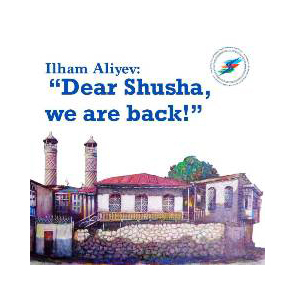
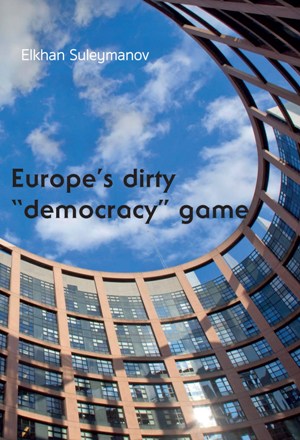
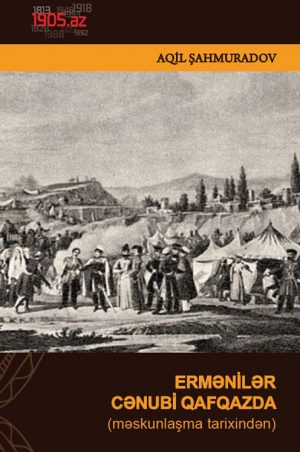





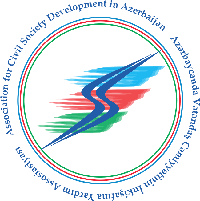
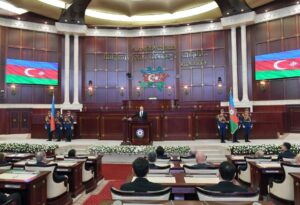 Inauguration ceremony of President of Azerbaijan Ilham Aliyev was held
Inauguration ceremony of President of Azerbaijan Ilham Aliyev was held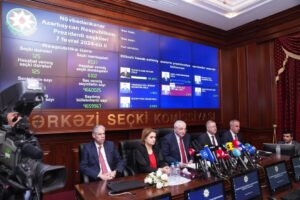 Ilham Aliyev wins presidential election with 92.05 percent of votes VIDEO
Ilham Aliyev wins presidential election with 92.05 percent of votes VIDEO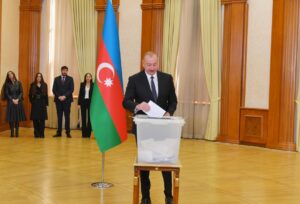 President Ilham Aliyev, First Lady Mehriban Aliyeva and family members voted in Khankendi VIDEO
President Ilham Aliyev, First Lady Mehriban Aliyeva and family members voted in Khankendi VIDEO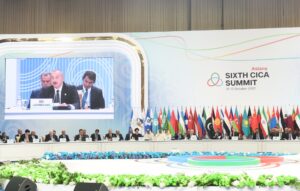 Plenary session of 6th Summit of Conference on Interaction and Confidence Building Measures in Asia gets underway in Astana. President Ilham Aliyev attends the plenary session VIDEO
Plenary session of 6th Summit of Conference on Interaction and Confidence Building Measures in Asia gets underway in Astana. President Ilham Aliyev attends the plenary session VIDEO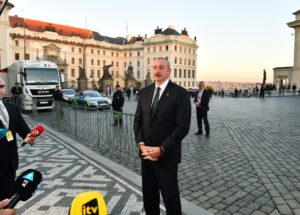 President Ilham Aliyev was interviewed by Azerbaijani TV channels in Prague VIDEO
President Ilham Aliyev was interviewed by Azerbaijani TV channels in Prague VIDEO



